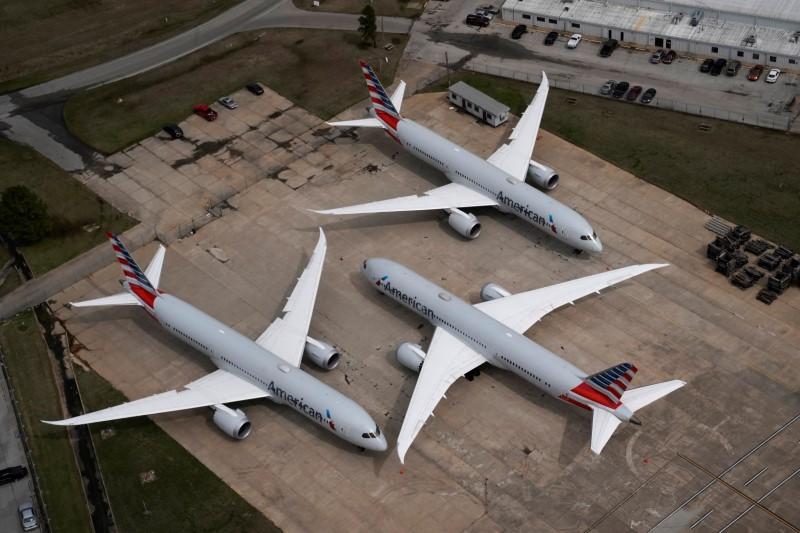WASHINGTON/CHICAGO, (Reuters) – The U.S. Senate voted late yesterday 96-0 to give the U.S. aviation industry $58 billion in a coronavirus-rescue package, half in the form of grants to cover some 750,000 employees’ paychecks, in a badly needed lifeline for an industry facing the worst travel downturn in history.
The $2 trillion economic rescue package awards passenger airlines $25 billion in grants and $25 billion in loans, cargo carriers another $8 billion divided between loans and grants, and airport contractors like caterers up to $3 billion in grants. The U.S. House of Representatives is expected to vote to approve the measure Friday and President Donald Trump has promised to sign it into law.
Senate Republicans had fought what they called a give away to airlines and initially offered only loans, while airlines had threatened to start laying off tens of thousands within days if they did not get cash.
“This is not a corporate bailout; it’s a rescue package for workers,” said Association of Flight Attendants Sara Nelson, who spearheaded the idea of direct payroll grants for employees ranging from janitorial staff and gate agents to mechanics and pilots.
Reuters reported Chao worked the phones late into the night talking to air carriers about what they needed to ensure they could maintain payrolls, a person briefed on call on Tuesday that lawmakers were nearing agreement on a deal for cash grants for payroll and other employee costs, after airlines made a last-minute effort to convince lawmakers they needed the cash to prevent furloughing tens of thousands of workers.
U.S. airline shares extended a Tuesday rally on hopes for cash relief and under the bill airlines are set to get cash assistance in as little as two weeks.
Republican Senator Pat Toomey, whose party had proposed $58 billion in loans, said on Wednesday the grants were a key sticking point. He said Democrats insisted “we give away money to airlines and never get it back.”
In a win for labor, companies receiving funds cannot lay off employees before Sept. 30 or change collective bargaining agreements.
The bill has restrictions on stock buybacks, dividends and executive compensation, and allows the government to take equity, warrants or other compensation as part of the rescue package, but does not require it.
Airlines would also receive tax relief on fuel purchases and, in a move that may bring down passenger fares, a temporary suspension on ticket taxes.
As the coronavirus has spread around the world, travel demand has plummeted, with airlines drastically reducing flights and warning of more cuts to come.
Airlines keep canceling flights, borrowing money and slashing costs as demand falls.
Alaska Airlines said Wednesday it would cut its flights by 70% in April and May, while United Airlines said Wednesday would now cut 52% of U.S. flights and overall capacity by 68%. On Tuesday, 279,018 people were screened at all U.S. airport checkpoints, down 87% over last year.
Airlines accepting loans may have to ensure certain air services in order to maintain health care and pharmaceutical supply chains, including to remote communities, but other consumer and environmental protections sought by many Democrats did not make it into the bill.
Airlines and unions won crucial support for the grants from U.S. Transportation Secretary Elaine Chao, who worked the phones late into the night, telling lawmakers and others in the administration she was concerned about the impact of job losses and a decline in the U.S. aviation sector on competition, people briefed on the matter said.
“Without grants, airlines may be forced to choose bankruptcy over federal loans, if loan conditions are too inflexible,” Chao warned in a memo seen by Reuters.
Airlines have argued that they are key to restarting the economy once the coronavirus outbreak subsides.
U.S. airports, whose concourses have been nearly empty, are set to receive $10 billion in grants.
The government will also provide $25 billion in grants for U.S. transit systems and $1 billion for U.S. passenger railroad Amtrak, that have seen ridership fall dramatically as states ordered tens of millions of Americans to stay home and avoid non-essential travel.
Boeing Co could receive government loans under a $17 billion fund set aside for direct national security-related loans, Toomey said, adding that many companies could qualify. Boeing could also qualify under the broader $454 billion loan program.
“It is not meant to be exclusively for Boeing… You should not think of it as a Boeing allocation,” Toomey said.
Boeing had sought at least $60 billion in government loan guarantees for itself and the entire aerospace manufacturing sector. Boeing did not comment on Wednesday.

